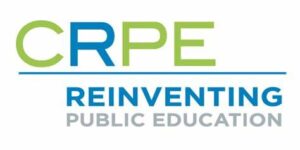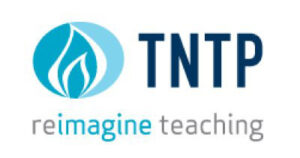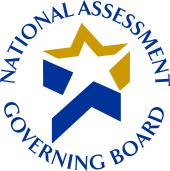Related Research: Parents 2022
Bibb Hubbard, Founder and President
“Despite all of the national and local news around learning loss, 92% of all parents – regardless of race or income or education level — still believe their children are at grade level. As long as 84% of parents are seeing their children bring home A’s and B’s, they are not going to sign their child up for tutoring or extra instructional time. To help advance academic recovery efforts, every parent can ask their teacher, “Is my child on grade level in reading and math? Parents act on what they know.”
Related Research: Education Recovery Hub
Jim Cowen, Executive Director
“Investments in academic recovery and acceleration, mental and physical health, and high-quality curricular resources and professional learning are the best chance we have to ensure all students are emerging from the pandemic stronger. The $189 billion in federal recovery funds being distributed for education relief is a good first step to jumpstart important assistance to students, but we must not squander this opportunity. Districts and states should seize this moment to set up systems to track what’s working and adapt their recovery plans, if needed, so that they are executing practices with the most potential to help students succeed.”
“We absolutely respect and encourage the reporting of progress on education recovery, but we also believe parents and families deserve the truth about how their children are faring. It’s a stark reminder that we should exercise caution when claiming students are on the rebound when we know the road to recovery is long and just getting started.”
Related Research: Education Recovery Calculator
Dr. Marguerite Roza, Director
“We now see how much ground districts have to make up to get their students back on track. More than ever we need district leaders to communicate with their communities on how they are using recovery funds to address those gaps.”
Related Research: The Road to COVID Recovery: Actionable Research on District Strategies for Student Achievement
Dr. Dan Goldhaber, Director & Vice President
“When it comes to addressing students’ learning loss, we must resist the temptation to try to get back to normal. Returning to a normal school routine, without addressing lost learning opportunities, would leave millions of students permanently behind.” Analysis: Pandemic Learning Loss Could Cost U.S. Students $2 Trillion in Lifetime Earnings. What States & Schools Can Do to Avert This Crisis
“This is a once-in-a-generation opportunity to collectively learn which interventions most help students recover academically.” ‘Once-in-a-Generation Opportunity’: Research Heavyweights Team Up to Help Districts Use Real-Time Data to Aid Students’ Pandemic Recovery
Related Research: Student Achievement in
2021-22
Dr. Karyn Lewis, Director, Center for School and Student Progress
“We may have pulled out of the nosedive in achievement that occurred during the early phase of the pandemic, but there is significant lost altitude to regain and especially so for the students who have been most harmed. If we continue to improve at this pace, full recovery is still several years away and almost certainly will not be realized before federal recovery funds must be spent.“
Dr. Andrew McEeachin, Director, Collaborative for Student Growth
“Understanding the sustained impact of the pandemic on students’ lives requires unpacking the varied experiences across districts and communities. It also means addressing long-standing inequities, made worse by the pandemic, in our school systems.”
Dr. Emily Morton, Research Scientist
“Districts that were able to start their interventions last year faced substantial challenges with staffing, scheduling, and/or reaching the targeted students that resulted in fewer students, and sometimes different students, than intended receiving lower doses of intervention (i.e., fewer hours) than intended. Unfortunately, even their plans were often undersized to meet their students’ needs for academic recovery. Districts will need additional support from their communities and states to deliver programming at scale.”
Related Research: Pandemic Learning and Pandemic Data Tracking
Robin Lake, Director
“As we look around at the still-unfolding aftermath of the pandemic, the evidence is clear: Our students need help now. They missed many months worth of instruction and suffered socially and emotionally. We must pay them back what they are owed, and we must find a way to build a more equitable, nimble and responsive American education system.” The COVID crisis cracked our education system. A new reform coalition must come together to fix it in the interest of children
“Will the story be that we failed this generation of children, or will it be that we pulled together and found solutions for this generation, and designed a better education system for future generations?” The 74 Interview: CRPE’s Robin Lake on the Pandemic’s Missed Opportunities, Lingering Inequities and the ‘Decade of Work Ahead’ to Turn it All Around
Related Research: Accelerate, Don’t Remediate
Dr. Tequilla Brownie, CEO
“These data tell the story of a system that may be broken beyond repair. It is clear that the problems pre-date the pandemic and, therefore, we should not confine ourselves to solutions that present a path back to pre-pandemic levels of proficiency. We must instead focus our efforts to redesign the system for modern expectations, to provide students with multiple pathways to social and economic mobility to ensure that children in poverty do not become impoverished adults. This is a call to action for the kind of broad coalition required to achieve a bold, transformative vision.”
Related Research: Latino Student Success: Advancing Education For All
Janet Murguia, President and CEO
“Now that we are emerging from our bunkers and the extent of the epidemic’s impact is coming into focus, it is clear that 20% will not nearly be enough to address the damage done.”
“If we don’t act now–and if we don’t act ambitiously–a generation of children could be adversely affected, with long-term implications for the nation.”
Related Research: NAEP Data Explorer
Dr. Martin West, Board Member
“While we see declines at all performance levels, the growing gap between students at the top and those at the bottom is an important but overlooked trend. Supporting the academic recovery of lower-performing students should be a top priority for educators and policymakers nationwide.” How far have math and reading scores dropped? It’s staggering.
Related Research: COVID-19 Impact on Education Equity
Dr. John King, President & CEO
“The 2022 NAEP results are shocking for all students, but are especially disappointing for Black and Latino students and students from families struggling economically who were deeply underserved before and during the pandemic,” said John B. King, Jr, president of The Education Trust and 10th U.S. Secretary of Education.
Related Research: The Consequences of Remote and Hybrid Instruction During the Pandemic
Doug Staiger, Professor of Economics, Dartmouth College
“This information on how far students fell behind during the pandemic is a critical piece of information for districts as they plan how to use pandemic funds for academic recovery.”

Sean Reardon
Professor of Poverty and Inequality in Education“We should thank teachers and principals and superintendents for what they’ve done for American schoolchildren in the last year; their efforts have led to strikingly large improvements in children’s learning. But we shouldn’t lose sight of the fact that the recovery has been uneven and we have a long way to go. Academic performance remains lower and more unequal than in 2019 in all but the wealthiest communities in America,” said Sean Reardon, Professor of Poverty and Inequality, Stanford Graduate School of Education, and one of the study’s co-authors.

Thomas Kane
Walter H. Gale Professor of Education and Economics“No one wants poor children to foot the bill for the pandemic, but that is the path that most states are on,” said Dr. Thomas Kane, Faculty Director of the Center for Education Policy Research at Harvard University and one of the study’s co-authors. "States need to take leadership and ensure that every last dollar of the remaining federal relief is spent on academic recovery efforts, like summer school, high-quality tutoring, and after-school instruction next year.”










